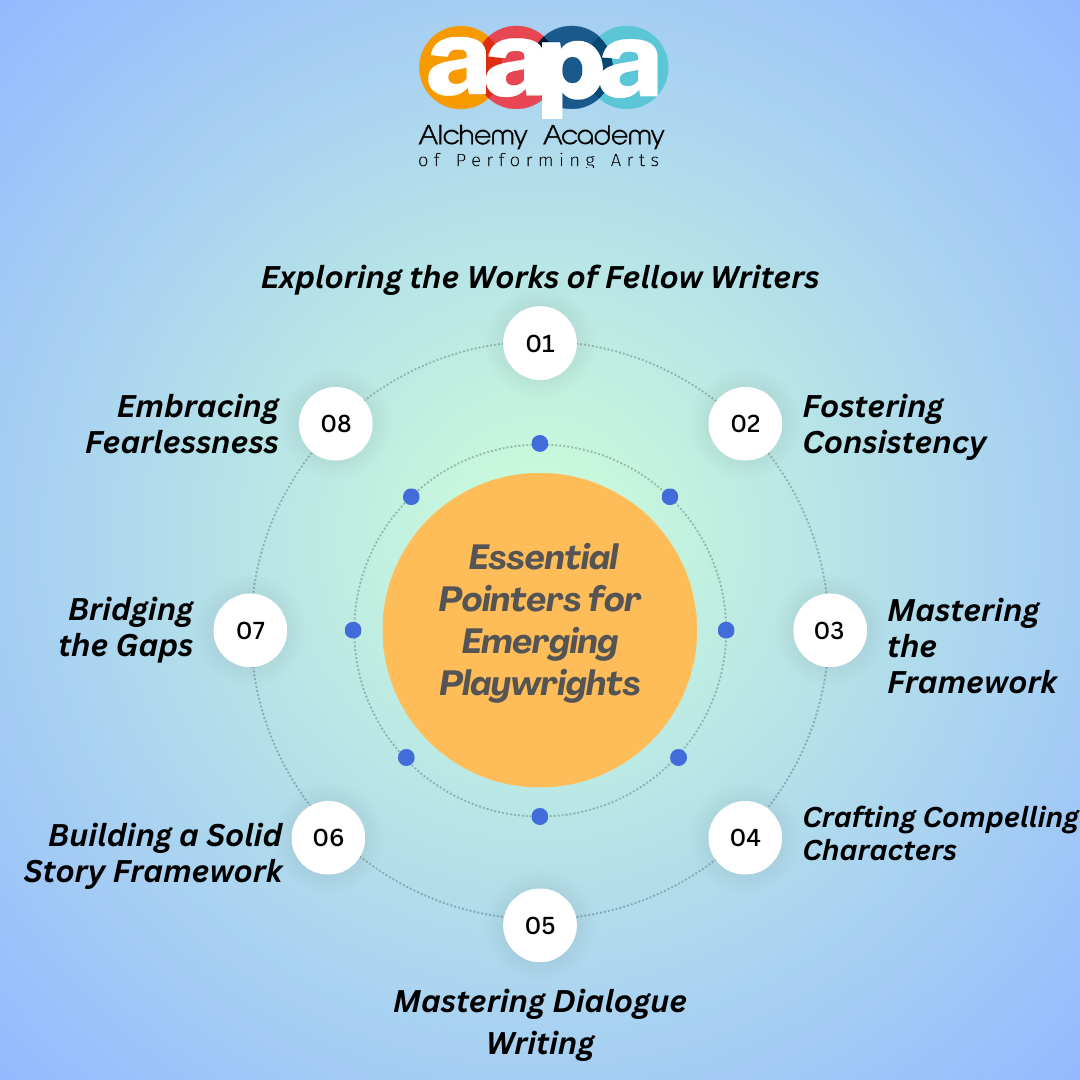
There is no one right way to write a play. Every writer has their own method, and it is a continuous process of learning and unlearning, trial and error, as you progress in your playwriting career.
Here are 10 must-follow tips for playwrights as they embark on a journey to discover the stories within their own imaginations.
- Exploring the works of other writers: Familiarize yourself with a variety of plays from different genres, styles, and time periods. Closely study what other writers are doing, the different kinds of writing styles they employ, or how they use characters to convey a story. This exposure will enrich your understanding of storytelling techniques. The best artists are in a constant state of dialogue with other artists- be it their mentors, their contemporaries or artists from a different era.
- Fostering consistency: Discipline is created through consistency and repetition. Set aside dedicated time to work on your scripts and refine your ideas, even if it’s just fifteen minutes everyday. Once you get into the practice of consistent writing, you will observe a marked improvement in your creativity, your flow and you will start to develop your own unique writing style.
- Mastering the framework: Study the structure of plays, including acts, scenes, character arcs, subplots, climax, tension and resolution. Learn about the three-act format and how it applies to theater. Understanding this underlying structure helps playwrights plot out their story effectively. The acts, scenes, character entrances and exits all work together to move the narrative forward in an engaging way.
- Crafting compelling characters: Plays are a deep dive into the messy, painful and sublime human experience. People are complex, diverse and surprising. Develop well-rounded characters with distinct personalities, motivations, and conflicts. Their interactions drive the drama. Many successful playwrights believe in developing a play through characters, and using them to develop and discover the plot.
- Mastering Dialogue Writing: Dialogue is a powerful tool in theater. In screenplays, it’s often said that dialogue should be just the headlines, or the bare minimum. But in a play, you have much more room to express a character through rich, evocative language. Make use of devices like rhythm, cadence, figures of speech, and imagery.
- Building a solid story framework. Create a rough structure by outlining the various acts and writing down the beginning, middle, and end of your play. Separate your plot points into their respective acts. Keep your act breaks compelling to maintain the audience’s interest. Include a subplot or two that helps to develop your characters.
- Bridging the gaps: Once you define the structure, flesh out the body and action of the play. Write the play out of order if it helps with your creative flow. Some writers start writing the climax or end of the play before the first act to help them avoid overwriting and to ensure that the story stays on track. Break long scenes of dialogue up with action, gestures, and visual cues. Theater is a visual medium; let the audience interpret and feel the story.
- Embracing fearlessness: Give yourself permission to express your ideas freely. Writing a play can be one of the greatest adventures you’ll ever experience. It can be challenging, no doubt, but the goal is to write and not be afraid. Don’t be discouraged by other literary works and set yourself to an impossible standard.
Remember that playwriting is an evolving skill. Continuously learn, adapt, and experiment with your writing and learn to love the process. Everybody has to start somewhere, and little by little, you will find your voice.
If you’re looking to take up performing arts as a profession, consider going through what we offer at Alchemy Academy of Performing Arts (AAPA) Centre of Excellence. We offer 360-degree exposure to the performative, technical, creative and management aspects of the arts, opening up a multitude of career opportunities in theater, dance and music.






